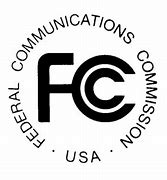Advocating for Technology Neutrality: A Path to Inclusive Connectivity

Policymakers and industry leaders are championing technology neutrality as a key principle for bridging the digital divide. By embracing a range of solutions, this approach aims to ensure connectivity for diverse communities and geographies, offering flexibility and scalability for future growth.
Program Consolidation, Audits, Alternative Technologies Could Be Among BEAD Changes

Headline: The future of the Broadband Equity Access and Deployment (BEAD) Program and how it might change is an issue high in rural broadband providers’ minds.Article: The incoming administration and […]
Broadband Groups Rejected by Supreme Court on New York Rate Caps

Headline: The US Supreme Court rejected a broadband industry appeal and let New York become the first state to cap rates for low-income households.Article: The high court, without comment, refused […]
FCC Eases Financial Burdens on Rural Broadband Providers with New Letter of Credit Rules

The Federal Communications Commission (FCC) has adopted a significant order that reduces Letter of Credit (LOC) requirements for recipients of rural broadband funding, a move aimed at freeing up more capital for actual network deployment while maintaining appropriate financial safeguards.
Streamlining Regulations to Boost Rural Broadband

In a move that could significantly reduce administrative burdens for rural telecommunications companies, the U.S. Senate has passed legislation designed to streamline financial reporting requirements for small broadband providers. The ACCESS Rural America Act, which garnered bipartisan support, raises the shareholder registration threshold for providers receiving federal universal service support, potentially freeing up resources for rural broadband expansion.
Europe signs off on €10.6B IRIS² satellite broadband deal

Headline: Service promised by 2030 for bloc’s take on StarlinkArticle: A competitor for Elon Musk’s Starlink satellite broadband constellation is on the way after Eurocrats signed the concession contract for […]
FCC Adopts Rules Allowing FM Broadcasters Greater Content Customization

The U.S. Federal Communications Commission (FCC) has approved new rules enabling FM radio stations to use advanced booster technology to customize programming for different geographic areas within their coverage zones. This decision marks a significant shift in FM broadcasting, opening the door for localized content delivery.
NTIA Approves Digital Equity Grants for Ten More States

This week, the National Telecommunications and Information Administration (NTIA) announced the approval of Digital Equity Capacity Grant Program funding for ten additional states. These grants aim to enhance access to high-speed internet and promote digital inclusion for underserved communities. The newly approved states include Hawaii, Kansas, Kentucky, Massachusetts, Mississippi, New Jersey, North Carolina, Pennsylvania, Rhode Island, and Virginia.

